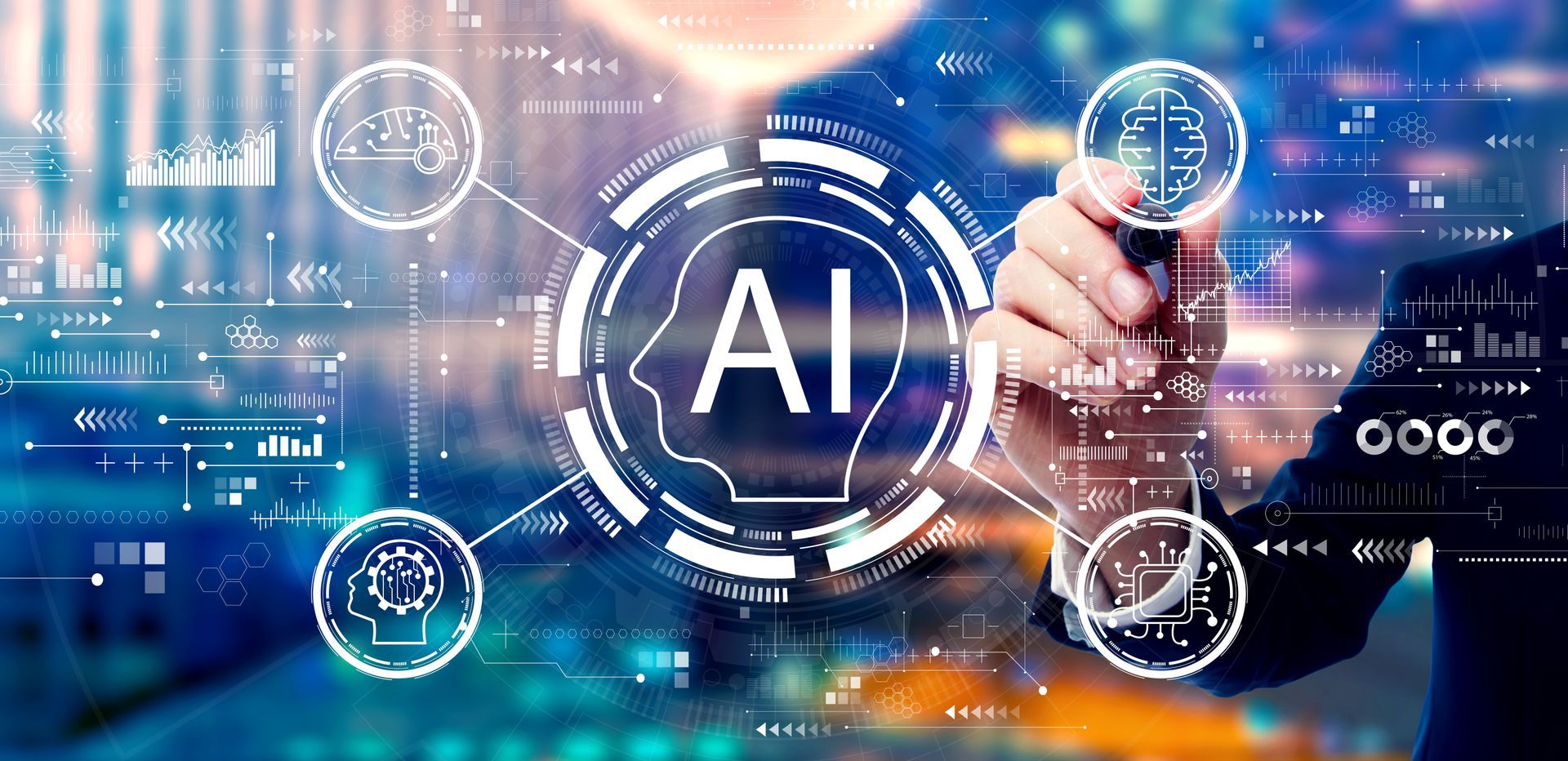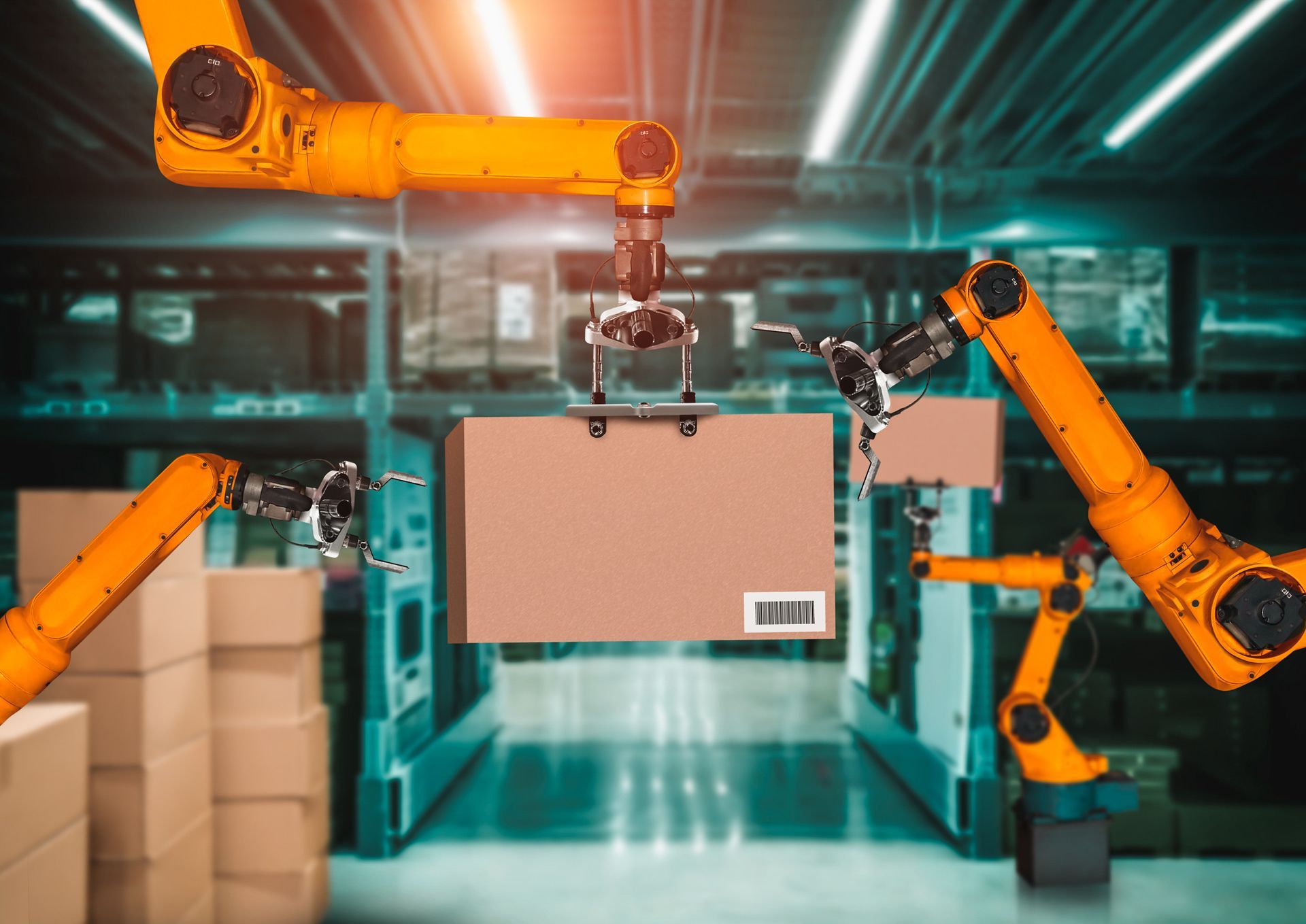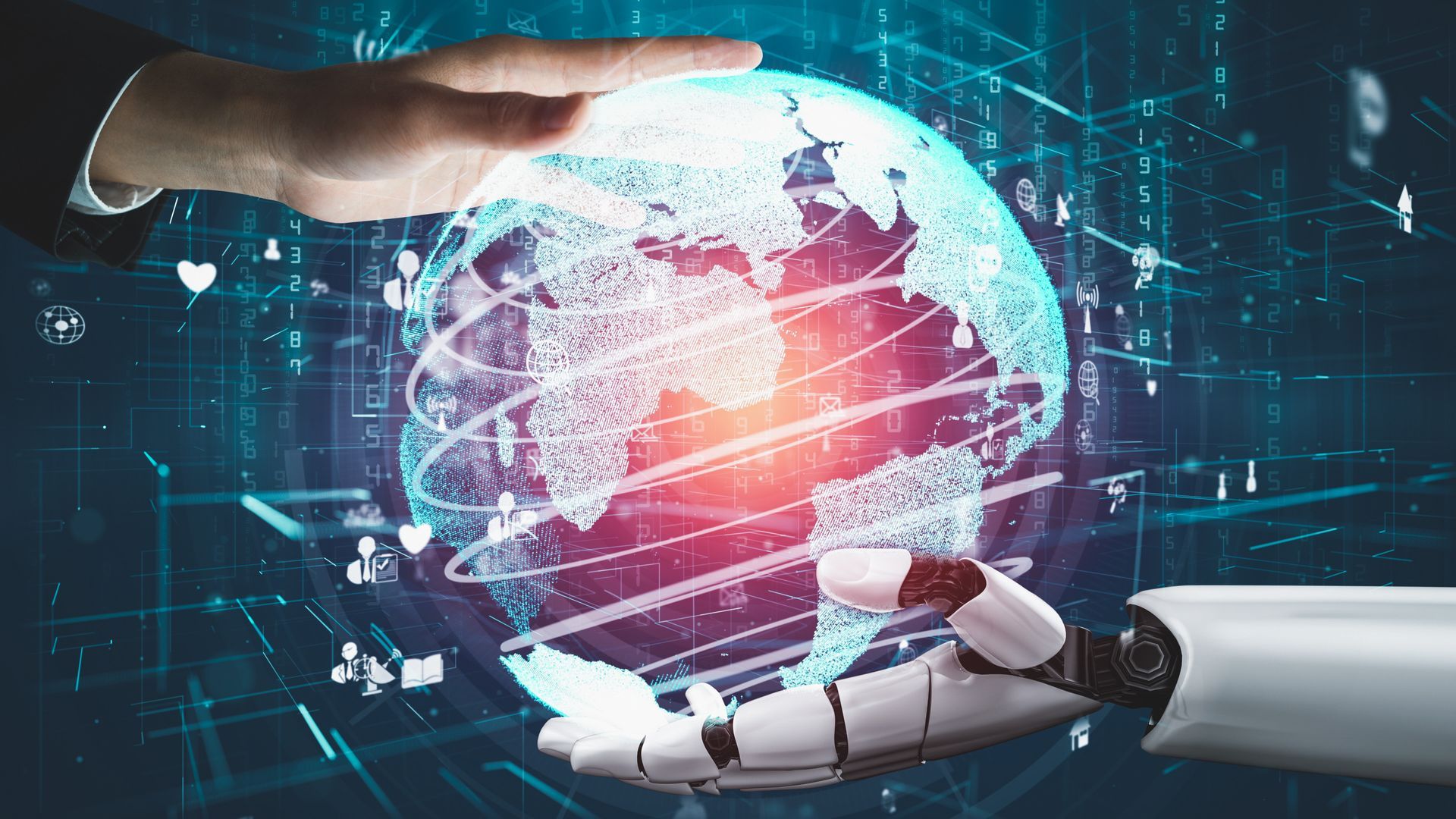Supplies Made Simple™: Talk to our Sales Team today!
Will AI Have A Role In Supply Chain Management and Wholesale Distribution?
Will AI Have A Role In Supply Chain Management and Wholesale Distribution?

Artificial Intelligence (AI) is transforming industries at a rapid pace. This fact is also relevant to the whole distribution and supply chain management world. The best way to utilize these new AI tools is to understand their impact within both industries. The current state of wholesale distribution and supply chain management is saturated with mistakes, delays, and inefficiencies.
Pandemics and trade disruptions are global events that exacerbate these problems and emphasize the need for innovation. But if AI can help us streamline certain processes to improve it can become a staple in business operations.
This blog seeks to investigate how AI could transform wholesale distribution and supply chain management. We will address present issues and lay the groundwork for future advancements in efficiency.
Current State of Supply Chain Management & Wholesale Distribution
Challenges Faced
Supply chain management and wholesale distribution face several challenges. These inefficiencies can result in delays, increased costs, and lost opportunities. Inaccurate demand forecasting, inventory management, and order fulfillment errors also contribute to these issues.
Global events like the COVID-19 pandemic exacerbated vulnerabilities, highlighting the need for a resilient supply chain to maintain continuity and withstand shocks, and emphasizing the need for adaptable solutions in the face of global challenges.
The Potential of AI in wholesale distribution

AI Capabilities in Solving Wholesale Distribution issues
Supply chain management can greatly benefit from the potential that artificial intelligence (AI) offers. Predictive analytics, real-time data processing, and machine learning are important AI technologies.
Large-scale information can be analyzed by machine learning algorithms to find patterns and trends that are nearly impossible for humans to see. These insights are used by predictive analytics to forecast demand, optimize inventory levels, and foresee any interruptions.
Furthermore, AI-powered real-time tracking technologies offer never-before-seen transparency into the flow of items across the supply chain. Businesses can react quickly to changes thanks to this real-time data, which cuts down on delays and enhances collaboration all around.
Benefits of AI Technologies
Artificial intelligence (AI) expedites decision-making by decreasing the possibility of human error and automating repetitive operations while delivering data-driven insights. A more flexible supply chain and optimized operations are the outcomes of this.
AI-driven solutions also provide improved resource management, which lowers costs. For example, optimal inventory management minimizes holding costs and waste by ensuring that stock inventories are maintained at optimal quantities. Accurate demand forecasting also aids in scheduling production to meet market demands, preventing overproduction and stockouts.
Real-World Examples of Supply Chain Issues
Numerous businesses have effectively included artificial intelligence (AI) in their supply chains, demonstrating the technology's promise. For instance, Amazon employs AI to improve warehouse automation and demand predictions, which leads to quicker delivery times and lower operating costs.
With the use of artificial intelligence (AI), Walmart has been able to improve inventory turnover rates and drastically reduce the number of out-of-stock items in its supply chain. UPS optimizes delivery routes using AI-driven algorithms, which guarantees on-time delivery while consuming less fuel.
These practical examples show how AI may improve productivity, accuracy, and cost-effectiveness while also establishing a standard that other businesses can adhere to.
How We Can Effectively and Ethically Solve Procurement and Supply Chain Issues with AI

Ethical Considerations with AI Technologies
The growing integration of AI in supply chain and procurement management raises some ethical issues that must be addressed. Data privacy is a serious issue because AI systems need a lot of data to work well. Trust and adherence to privacy laws depend on making sure that this data is gathered, kept, and utilized appropriately.
Employment displacement is a serious problem as well. AI and automation may result in a decline in the demand for some jobs, requiring plans for retraining and reassigning impacted employees. Furthermore, if AI systems are trained on skewed or unrepresentative data, algorithmic bias may develop, producing inaccurate results.
To guarantee inclusivity and fairness, it's critical to continuously assess and improve these mechanisms.
Effective Strategies with Predictive Analytics and AI
Responsible AI implementation necessitates following best practices that put responsibility, transparency, and human oversight first. Building trust among stakeholders is facilitated by transparency, which entails outlining how AI systems function and making judgments in plain terms.
Accountability entails setting up systems to monitor and handle any problems resulting from the application of AI, making sure that a precise procedure for resolving them exists. To combine the benefits of AI with human judgment and make sure that important decisions are taken from a balanced point of view, human oversight is essential.
This entails keeping people informed about important decisions and regularly assessing AI performance to make the required corrections.
Case Studies of Responsible AI
Several businesses have established standards for the application of moral AI. For example, Google has created a set of AI principles that direct its creation and application of AI technology, placing a strong emphasis on accountability, privacy, and fairness.
Microsoft's AI for Good effort aims to employ AI to solve societal issues while maintaining ethical standards. These instances show that it is feasible to take advantage of AI's advantages while upholding a robust ethical framework. Other businesses can effectively and responsibly incorporate AI into their supply chain and procurement procedures by taking inspiration from these examples.
The Future of AI in Supply Chain Management and Wholesale Distribution

Market Trends & Predictions for AI Integration
AI's role in supply chain management and wholesale distribution is expected to grow significantly in the future thanks to new developments in technology and creative thinking. The combination of blockchain technology and artificial intelligence is one of the most anticipated advancements.
By offering unchangeable records of transactions and the movement of commodities, this combination promises to improve security and transparency throughout the supply chain. The development of AI-driven robotics, which is predicted to completely transform logistics and warehousing operations, is another noteworthy topic. With the use of sophisticated AI algorithms, these robots can carry out difficult jobs with accuracy and efficiency, which lowers operational expenses and human error.
AI's long-term effects on the sector will be significant. Supply chains will become more resilient and disruption-adaptive thanks to AI. AI can assist businesses in risk management and continuity by anticipating possible problems before they arise.
Generative AI will also improve resource efficiency and decrease waste in supply chain operations, resulting in increased sustainability. Routine chores can be automated to free up human workers to concentrate on more strategic and creative work, which could result in new job roles and opportunities within the business. In general, artificial intelligence will promote growth and innovation in addition to increasing efficiency and cost-effectiveness.
Concentric Health Alliance’s Vision of AI Integration
Concentric Health Alliance is a wholesale distributor that specializes in custom procurement, we envision AI optimizing various aspects of our industry. AI can revolutionize inventory control and demand forecasting with predictive analytics, ensuring items are always available when needed.
Real-time tracking technologies will enhance supply chain visibility, allowing quick responses to any supply chain disruption and better coordination. We believe ethical AI usage is crucial, prioritizing data security and privacy while adhering to strict industry standards. Investing in staff retraining programs will help our team adapt to new roles created by AI advancements, fostering inclusive and efficient supply chains.
Founded to offer direct, affordable, and quality manufacturing and supply options, Concentric Health Alliance is committed to making profound changes in global supply chain management. Our goal is to improve how goods and services are delivered, attract dedicated individuals, and foster a dynamic, innovative environment.
Interested in seeing what we have in our inventory: Visit our online store here.
You can also shop what we have on sale.












